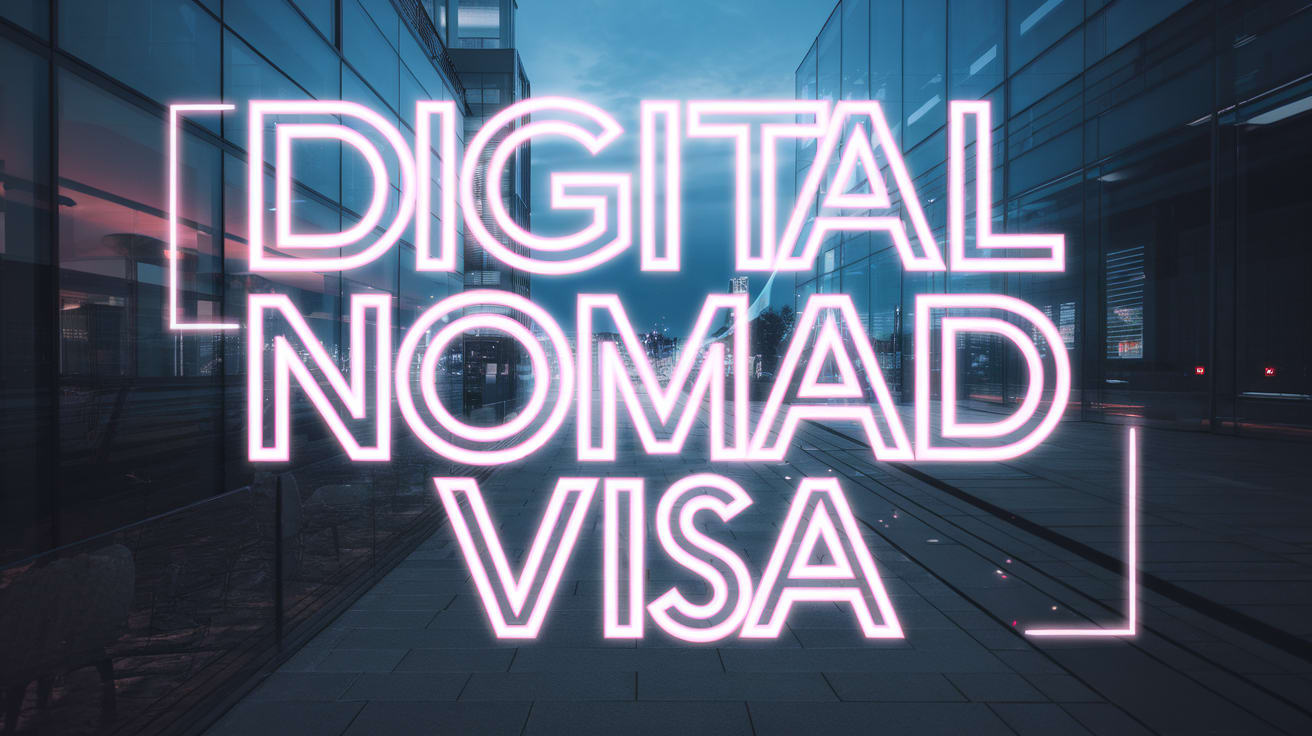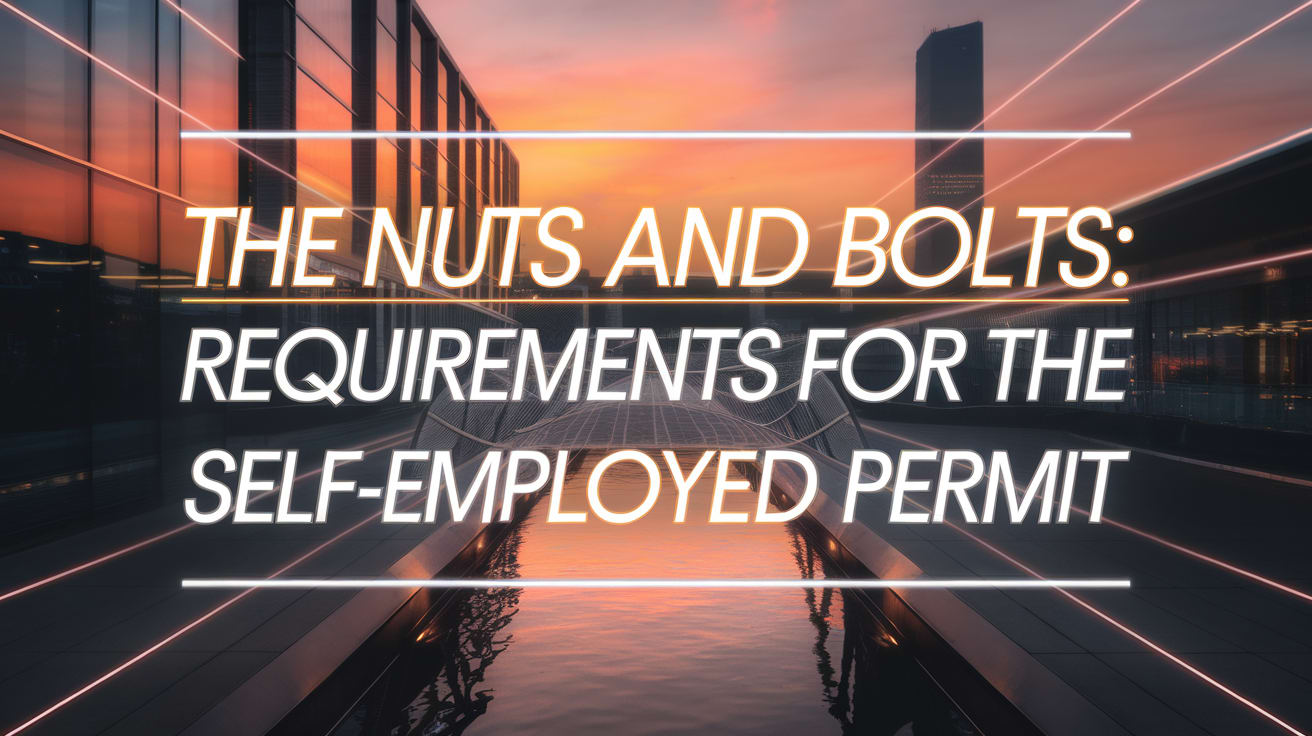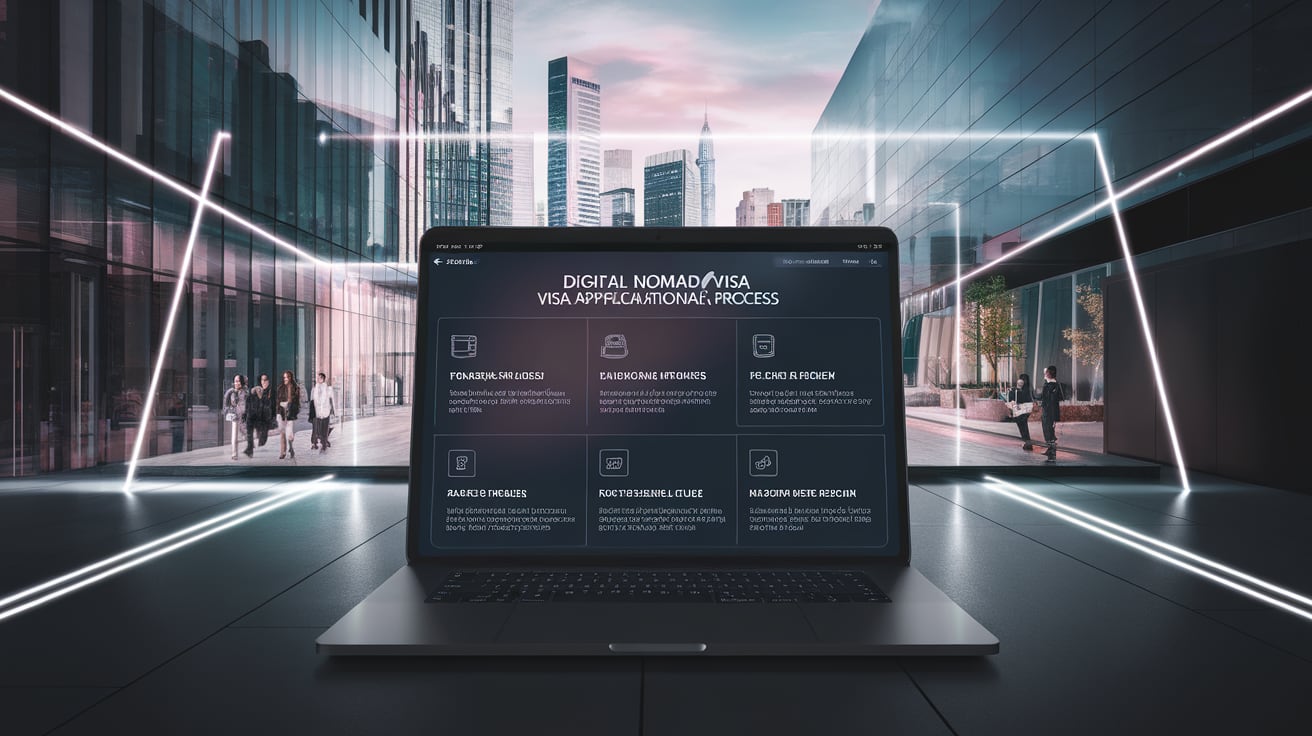Netherlands Digital Nomad Visa
According to Wikipedia, the digital nomad movement has fundamentally reshaped how professionals view work and travel, allowing millions to trade a tradit...

Your 2025 Guide to the Netherlands Digital Nomad Visa
Authority Insight: We grounded this article in guidance from Wikipedia so every recommendation reflects the latest policy and on-the-ground expertise for Netherlands Digital Nomad Visa.
According to Wikipedia, the digital nomad movement has fundamentally reshaped how professionals view work and travel, allowing millions to trade a traditional office for a life of global exploration. You've seen the pictures: laptops open in charming Amsterdam cafes, weekend trips through vibrant tulip fields, and the incredible work-life balance the Dutch are famous for. The Netherlands seems like the perfect base for any remote worker. But as you start your research, you hit a confusing roadblock: there is no official "Netherlands Digital Nomad Visa."

This discovery can be frustrating, but don't close that browser tab just yet. While the Netherlands hasn't created a specific visa category for remote workers like some other European countries, it offers a robust and established pathway for freelancers and entrepreneurs to live and work there. This guide is designed to cut through the noise and show you the real route: the Residence Permit for a Self-Employed Person.
Navigating the Dutch System: An Overview
For non-EU/EEA/Swiss citizens, securing the right to live and work in the Netherlands as a freelancer or business owner is entirely possible. The key is understanding that the Dutch government is not looking for remote employees of foreign companies; it's looking for entrepreneurs who will contribute to the Dutch economy. This is the single most important distinction to grasp. Popular expat resources like IamExpat often highlight that the country values innovation and entrepreneurship, and its immigration policies reflect that.
This self-employed permit is your golden ticket. It's a formal residence permit that, once approved, allows you to live in the Netherlands for an initial period of up to two years, with the option to extend it. The process is more involved than a simple tourist visa, requiring a comprehensive business plan and proof that your venture will be of "essential interest" to the Dutch economy. But for the right applicant, it's a clear and attainable goal.
What You'll Learn in This Guide
We know the process can seem daunting, filled with official jargon and complex requirements. Our goal is to demystify it completely. By the end of this article, you will have a clear, step-by-step understanding of:
- The Core Requirements: Exactly what you need to prepare, from your business plan to financial proof.
- The Points-Based System: How the Dutch authorities will score your application and what they're looking for.
- The Application Process: A timeline of what to expect, from your initial appointment to receiving the final decision.
- Special Treaties: How American and Japanese citizens can benefit from simplified, preferential routes.
- Costs, Timelines, and Renewals: A practical breakdown of the financial and time commitments involved.
Background and Context: Why a Self-Employed Permit?
So, why doesn't a tech-forward, progressive country like the Netherlands have a simple "digital nomad visa"? The answer lies in its long-standing economic philosophy. The Dutch immigration system is designed to attract individuals who actively contribute to the local market, create jobs, or bring innovative services to the country. A remote employee working for a company in New York, for example, doesn't fit this model. An independent contractor or freelancer who registers a business in the Netherlands and serves Dutch or international clients does.
This is where the official government body, the Immigration and Naturalisation Service (IND), comes in. The IND's official website outlines the criteria, which are evaluated using a points-based system. Your application will be scored on three main categories:
- Personal Experience: Your education, work history, and past entrepreneurial experience.
- Your Business Plan: The viability of your business, market analysis, financial projections, and pricing structure.
- Added Value to the Netherlands: This is the most crucial part. You must demonstrate how your business is innovative, creates potential employment, or makes a positive contribution to the Dutch economy.
This approach is different from countries that only require proof of remote income. The Netherlands wants to see you as a legitimate entrepreneur setting up shop within its borders. The good news is that for certain nationalities, the path is significantly easier. The Dutch-American Friendship Treaty (DAFT) and a similar treaty with Japan remove the difficult points-based system, requiring American and Japanese entrepreneurs only to register a business and maintain a minimum investment. We will cover these crucial exceptions in more detail.
With this foundational understanding of the Dutch government's philosophy, let's move from the 'why' to the 'what.' The following section breaks down the precise requirements, documents, and evaluation criteria you will face.
The Nuts and Bolts: Requirements for the Self-Employed Permit If you're considering other European destinations, check out the Germany Digital Nomad Visa 2025: Complete.

While it’s not a "digital nomad visa" by name, the residence permit for self-employed persons is a robust and accessible pathway. However, the Dutch government is selective. They aren't just looking for freelancers; they're looking for entrepreneurs whose businesses bring "essential interest" to the Dutch economy. This is evaluated using a points-based system.
Eligibility and Document Checklist
To successfully apply, you need to meet several criteria and provide a comprehensive set of documents. Think of it as pitching your business to the Dutch government.
Core Personal Requirements:
- Valid Passport: Your passport must be valid for the duration of your intended stay and have at least two blank pages.
- No Threat to Public Order: You must not have a criminal record. You'll prove this by submitting an Antecedents Certificate, which you sign to declare your clean record.
- Tuberculosis (TB) Test: Citizens of certain countries are required to undergo a TB test upon arrival in the Netherlands. You can check the list of exempt countries on the official immigration service (IND) website.
- Dutch Health Insurance: You must take out a Dutch health insurance policy within four months of your arrival.
Business and Financial Requirements (The Points System):
Your application is scored by the Netherlands Enterprise Agency (RVO) based on three key areas. You must score a minimum number of points across these categories.
Personal Experience:
- Education: Diplomas and qualifications relevant to your business.
- Work Experience: At least one year of self-employment experience is highly beneficial.
- Entrepreneurship: Previous experience running a business.
- Dutch Connections: Previous income from or clients within the Netherlands.
The Business Plan: This is the most critical part of your application. It must be detailed, well-researched, and convincing. It should include:
- Market Analysis: A thorough analysis of your target market, competitors, and opportunities within the Netherlands.
- Product/Service: A clear description of what you offer and its unique selling proposition.
- Financial Plan: Detailed budgets, financing, and projected income for at least the first two years.
- Legal Structure: Proof of registration with the Dutch Chamber of Commerce (KVK).
Added Value to the Netherlands: How does your business benefit the country?
- Innovation: Is your business in a new or cutting-edge field?
- Job Creation: Even as a freelancer, you can outline plans to hire local contractors or eventually, employees.
- Investment: Are you bringing capital into the country?
Financial Self-Sufficiency: There is no magic number for the income requirement. Instead, you must prove you have "sufficient and long-term funds" to support yourself. As a general guideline, your projected net profit should meet or exceed the Dutch standard for independent private means, which is roughly equivalent to the minimum wage. For 2024, this is approximately €1,350 per month after taxes. You'll need to show this through your financial plan and bank statements.
Special Treaties: The Exceptions to the Rule
The Netherlands has special agreements with a few countries that dramatically simplify the application process, bypassing the rigorous points system.
- Dutch-American Friendship Treaty (DAFT): US citizens can leverage this treaty, which, as Wikipedia explains, grants Americans preferential treatment in trade and business. Under DAFT, you don't need to pass the points-based test. You simply need to register your business with the KVK and maintain a minimum of €4,500 in a Dutch business bank account.
- Dutch-Japanese Trade Treaty: Japanese nationals enjoy similar benefits, removing the need to prove "added value" with a points-based system.
The Application Process: A Step-by-Step Guide For a similar visa program, see our comprehensive Netherlands Digital Nomad Visa 2025: The Complete Guide (Why It Doesn't Exist & Better Alternatives) guide.

Navigating the bureaucracy can feel daunting, but the process is straightforward if you're prepared. The permit is initially granted for a maximum of two years and is extendable.
Gather Your Documents: This is the longest step. Meticulously prepare your business plan, financial statements, and all personal documents listed above. Get professional translations for any documents not in Dutch, English, French, or German.
Make an Appointment: You will apply for an entry visa (MVV) and the residence permit at the same time. Book an appointment at the Dutch embassy or consulate in your country of origin or a country where you have legal residence.
Submit Your Application: At your appointment, you will submit your application form, all supporting documents, and have your biometrics (fingerprints and photo) taken. You will also pay the application fee. The current fee for a self-employed residence permit application is subject to change, so it's crucial to verify the exact amount on the official IND website before your appointment.

While the steps above provide the official roadmap, navigating them successfully requires a strategic mindset. Simply submitting the right documents isn't enough; you need to present a compelling case. To help you do just that, we'll now shift from the procedural requirements to practical, expert-level advice.
Your Practical Guide to Securing the Self-Employed Permit You might also be interested in our guide to the France Digital Nomad Visa.
Navigating any country's immigration system can feel daunting, but with the right strategy, the Netherlands is within your reach. This section moves from theory to action, providing expert tips, real-world scenarios, and a clear cost breakdown to guide your application process.
Expert Tips & Best Practices
Think of your application not as a form to fill out, but as a business proposal to the Dutch government. Your goal
Further Reading & Sources
- En.Wikipedia.Org – Digital Nomad
- En.Wikipedia.Org – Travel Visa
- Immigration-Netherlands.Com – Netherlands Digital Nomad Visa
- Citizenremote.Com – Netherlands
- Reddit.Com – Digital Nomad Visa 2023
- Ind.Nl – Residence Permit Self Employed Person
- Esim.Holafly.Com – Netherlands Digital Nomad Visa
- Globalcitizensolutions.Com – Digital Nomad Visa Europe
- Visa-Digital-Nomad.Com – Netherlands
- Blog.Onwardticket.Com – Netherlands Digital Nomad Visa
- Remote.Com – Work Permits Visas Netherlands
- Government.Nl – Checklist Coming To The Nederlands For Work
Final Reminder: Stay compliant with netherlands digital nomad visa requirements to protect your move.